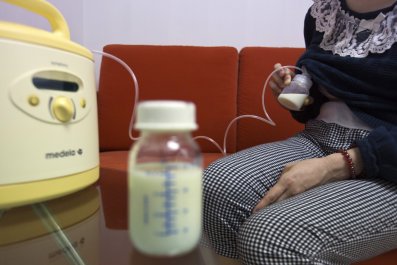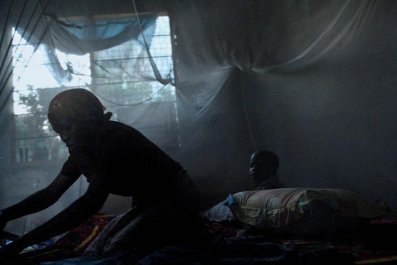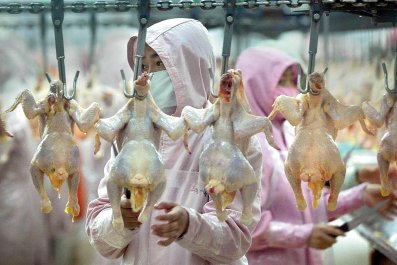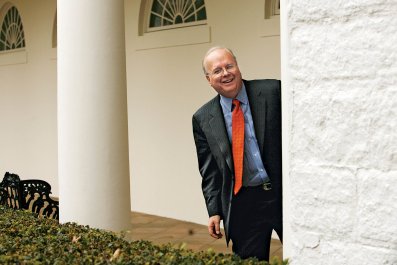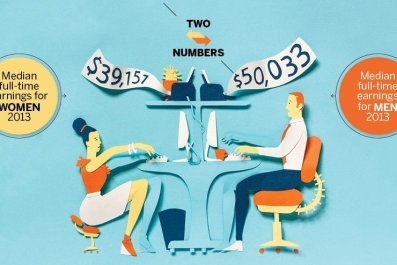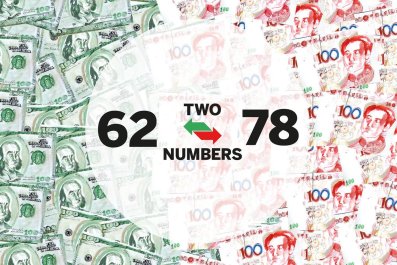Tess Wood grew up in Jacksonville, Florida, where she was the captain of her high school crew team. At Princeton University, she majored in psychology and wrote her thesis on gender dysphoria. She was also the only woman on the school's sprint football team; she played nose tackle.
Since graduating in 2011, she's been doing what so many Millennials do: improvising. Wood, who is 25 and aspires to write fiction and poetry, has spent the past three years working as a sugar baby, trading time, companionship and sex for financial support from older men. "Out of all the things I can do, why is it that the thing I'm choosing to focus on, cultivate and sell is my fucking body?" she asks.
Sugar dating, as it's often called, involves pay-for-play relationships between older, wealthy adults (sugar daddies/mommas) and attractive young women and men (sugar babies). It's unabashedly not about love or marriage; sugar dating is about getting what you want, when you want it. For sugar daddies and mommas, that's often companionship with a hot young thing, and sex—though few sites selling this kind of relationship would admit to the latter. For sugar babies, it's about cash, fancy dinners, lavish trips and high-end clothing.
Luxury aside, sugar dating has also become a viable economic option for young people who can't pay off school loans; can't afford rent, or don't have the skills and experience to get full-time jobs after college but are unable to support themselves on unpaid internships. "I thought, 'I'm not making money and I could be good at this, so why not?'" Wood says. "I knew how to use my body and I knew how to make someone feel good being around me, and I didn't have to try or think about it at all…. Like playing Candy Crush, only the end result was some guy came."
Relationships have long been transactional in American culture. Historically, women offered men their virtue, their ability to bear children, and a lifelong dedication to family; in return, men provided a home, food, clothing and financial security. Throughout the 19th century, young men courted women at their homes, but by the early 1900s, dates came into fashion. Boys were expected to take girls out for an evening on the town while girls brought delightful conversation and measured affection (kissing, petting—sex, if the guys were "lucky"). The fact that these transactions took place during a date made them socially acceptable. All the while, prostitutes and mistresses were relegated to a strictly transactional role: sex for money, or sex for luxury.
Is sugar dating prostitution, or simply the latest incarnation of courtship? Supporters tout the financial, social and professional benefits young women reap by renting their companionship to older men. "Many girls use the site to better themselves and their lifestyle," says Angela Jacob Bermudo, public relations manager at Seeking Arrangement, one of the most popular sugar dating websites (it has more than 3.6 million members). "Daddies make sure their babies get into the careers, grad schools and internships that they want." Seeking Arrangement's official stance is that sex has no place in the kind of relationships it is selling: "We quickly boot people off the site when we see proof they're trying to elicit any sexual service in exchange for money," Bermudo says.
Others argue that sugar dating is not so different from what so many people do already: marry for money. It's just that it feels a lot less icky to put a ring on it.
Critics are sure it's prostitution. And most parents of a sugar baby can't comprehend it: sending their daughter off to college only to learn she goes straight from biology lab or that Moby Dick seminar to dinner and whatever comes next with a man who could be her father.
Sugar dating has been making headlines for years: "Keeping Up with Being Kept" (New York Times); "Sugar daddy website has coeds justifying prostitution" (New York Post) and "The secret world of the $ugar babies" (Cosmopolitan), plus a 20/20 segment. Now, a 23-year-old woman hopes to give us all another perspective.
Parinda Wanitwat, who graduated from Princeton last spring, is behind Daddies Date Babies, an upcoming short documentary film that offers an intimate, unfettered glimpse inside the experiences, emotions and motivations of five female sugar babies living in New York City. Two are currently in college. Two are a few years out. One is a Ph.D. candidate. All of them could very well be your niece, your daughter, your best friend. The film is meant to provoke conversations about the benefits and risks of sugar dating while challenging our cultural norms for sex, money and relationships.
"I want to show the world that sometimes things are not the way you expect them to be," Wanitwat says. "You shouldn't think sugar babies are just gold-diggers without ambitions, or that they just crave Louis Vuitton bags. Or that sugar daddies are all creepy." At the same time, the footage she's filmed thus far "confirms my skepticism about how little people are aware about the risk involved in this affair, physically and emotionally."
One of the film's sugar babies says, "I'm a European history major. I want to become an academic or a professor in law… hopefully in France. I'm doing this 'job' [being a sugar baby] right now so that I can solely focus on studying later." Another: "I'm pretty lax about protection. Wait, herpes can be contracted by oral sex? Shit!"
Born and raised in Thailand, Wanitwat received a government scholarship to study at Phillips Exeter Academy in Exeter, New Hampshire. She went on to Princeton, where she studied politics and anthropology. Last year, when she went through a financially difficult period, she researched ways to earn money that were viable for someone "without management consulting or finance skills." One day, her iPhone was stolen. She didn't have enough money to buy a new one and didn't want to ask her parents for help. "My friend said there are so many guys who'd want to buy you a phone in New York. I was like, 'What?'" she recalls. "That's where it started." She's never been a sugar baby, although she once signed up for Seeking Arrangement and corresponded with a few sugar daddies; ultimately, she didn't think it was safe and deactivated her account.
Wanitwat began working on Daddies Date Babies this summer, soon after getting accepted to Orbital Boot Camp, a 12-week incubator in New York City that helps people get creative projects off the ground. Her Kickstarter campaign launched on September 9, and she aims to finish the film by the end of the year.
"My access is limited because they are busy people," she says of the five sugar babies she's profiling. "Last week, one was in Malibu with her sugar daddy."
The fledgling film has already sparked controversy. When Wanitwat emailed a Princeton alumni listerserve asking for reactions to and advice for her documentary, the so-called Princeton Mom, Susan Patton, who graduated in 1977, replied, "This is disgraceful. You're calling them sugar babies? They are prostitutes. How awful that Princeton's name is attached to this."
Wood saw the email, too: "I was like, 'Oh yeah, I've done this, I'll talk to you.'"
She is one the five young women profiled in the film. She has exclusively sugar dated on Seeking Arrangement, which is like a meat market-meets-adult Disney World-meets-occasional online brothel. It's tagline: "Relationships on your terms: Where beautiful, successful people fuel mutually beneficial relationships." Since launching in 2006, the site has grown from tens of thousands of members to nearly 3 million sugar babies, 700,000 sugar daddies (average age: 42) and 18,000 sugar mommas (average age: 37). Cost of membership for the older set ranges from $69.95 for 30 days to $2,049.95 for the one-year Diamond membership. When students sign up with their school email, they receive a free premium account. About a third of sugar daddies are married.
"If you date someone and decide to be in a relationship, you're not agreeing to have sex with that person," says Bermudo. "You're only agreeing to be a contributing member of that relationship."
But what, exactly, does it mean to contribute?
For Wood, sex was intrinsic to her sugar daddy relationships. In Jacksonville, she met two men. "One guy who was married and just not getting sex at home. Another was 24 and he was just, I don't know, he was just weird and resentful. He had a pretty small penis and was generally pretty clearly unhappy with his romantic lot in life," she says. In exchange for getting together three times a month, she was supposed to receive $1,500 a month from each of these sugar daddies. But she cut off both relationships after the first meeting, earning just $1,000.
She moved to Chicago for a marketing job, which she eventually quit. She took odd jobs, worked as a bartender and tried sugar dating again, but wound up getting scammed by a man she describes as a "super creepy guy who tried to brainwash me and get me to be part of his harem." That experience turned her off sugar dating—until she moved to New York City this past spring. She planned to start a business as a dating coach, but her potential partnership fell through. "I found a great sugar daddy who's cool. We could chill, hang out, have sex, with benefits. But he just couldn't pay me what I needed." He'd agreed to $5,000 a month, but was only able to pay her $1,500 for their six weeks together.
Bermudo, who has watched the trailer for Wanitwat's upcoming short film, is not thrilled by what she sees. "The documentarian has selected girls who are not the types we actually want on the site," Bermudo says. "The girls that we've seen in the clips have clearly exchanged sex for money, and that's something we strictly prohibit on the site.
"If [Wanitwat] is really trying to de-stereotype these relationships, why did she pick out stereotypical girls? You don't see the single mom who uses the site and finds a sugar daddy because she isn't earning enough and there's no one else to provide financial support for her children. Or, the college grad who's… in grad school precisely because of her sugar daddy," Bermudo says.
Wanitwat won't reveal her take on sugar dating, at least not on the record. "I want to provoke people to think and discuss and arrive at their own conclusions," she says.
Wood, who claims she's stopped sugar dating for good, says the fake intimacy is what finally got to her. "The men wanted me to pretend that I gave a shit about them, and I just didn't, so it was really hard for me. I didn't respect them either," she says. "It was not worth the money. The sex was not even registering. I could do that no problem; it was pretending that I cared. I just couldn't keep doing it."





